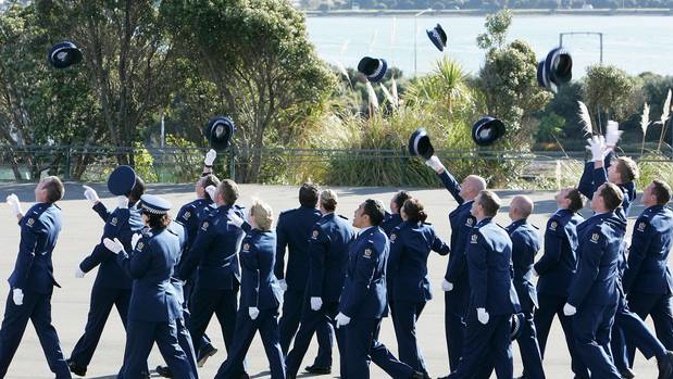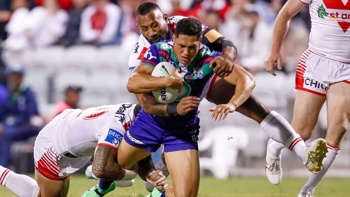
Police are beginning to press their claims for better pay and conditions, with negotiations between their union and their bosses beginning this week.
Among the issues concerning frontline officers are recruitment, retention and pay.
The Police Association has warned its members in its monthly magazine Police News that there could be some "torrid negotiations" ahead which it says it is well-prepared for.
The negotiations come at a time marked by industrial action in the public sector. Nurses have already been on strike, primary school teachers will strike next month, ACC senior doctors walked off the job this week, and MBIE and IRD staff have been on strike.
Legally, police cannot go on strike but Police Association president Chris Cahill warned Police Minister Stuart Nash that frustration may materialise in more staff leaving the force.
The Coalition Government has promised 1800 new frontline officers over three years but police say recruitment will not cover the "churn rate" of police leaving the force.
"What this Government must realise is that there's significant pent-up frustration in the public sector and generally around the lack of resources, which in our case the Government's met, but also pay," Cahill said.
"We make the point that they are two different issues. You can't say 'yeah we'll give you all the resources but you're not getting a pay rise' because all that will result in is an ability to recruit the new staff and an inability to retain the ones that are there, and that's equally important.
"The really clear message is the pressures [Nash] is seeing coming from other public sectors are repeated within police and there is an expectation that they'll be listened to. If he wants to get those 1800 extra officers out there he's got to make sure they retain the ones they've got as well or you'll just be replacing what's leaving and you won't be getting ahead."
Officers have complained that police pay is sliding backwards compared with other professions, with one estimating in Police News that an increase of at least 15 to 20 per cent for constables is required.
At present, a new police constable's base annual salary is $56,106. The average salary is around $67,078.
The officer said a constable's salary was "ridiculous".
"They work shifts [mostly], deal with the shitty side of life and get little reward.
"I note nurses and teachers have closed the gap over the years [because they fight] and in most cases have overtaken a constable's salary. I remember when nurses and teachers were about 70 per cent of an equivalent service constable, but not now."
Another wrote: "The Government is happy to splash the cash everywhere else and is happy to say it is giving us 1800 new staff over the next three years but, let's be realistic, if there isn't some serious negotiations going on in Wellington, your recruitment isn't going to cover your churn rate."
The Police Association says "everything will be in the mix" during this negotiation round, from the difficulties of living and working in Auckland, rosters, paid overtime and recruitment in a competitive market with low unemployment.
"Members need to be patient and see what those issues are that we disagree on and hopefully we agree on more. And at this stage we can hardly come out complaining when we haven't actually had an offer from Police," Cahill said.
The Police Association represents around 8900 sworn officers, about 99 per cent of the total, and 3500 non-sworn staff, about 73 per cent.
Negotiations were due to start last month but have been delayed while the police managers' collective moved to final offer final arbitration.
Arbitration binding on both sides is the means by which negotiations are settled if they are unable to reach agreement.
"In the end we do have final offer arbitration to fall back on. No one wants to get to a point where their argument's shown to be wrong so we have to structure good, sound-based arguments," Cahill said.
"We accept totally that the Government has come to the party on the resourcing side of things but it's not a closed argument, there's two sides to it. We understand the Government's got a big pool of resources to have to look after. But in saying that, we're also nervous that they think that because they've given us those resources that they don't have to follow that up and that simply isn't the case. The resources won't follow if you don't pay people appropriately."
Nash, who has to stay at arms' length from negotiations, said he was sure they would be robust.
"We gave a very generous amount to Police in the last Budget. It included $300 million in new operating funding and $18 million in new capital funding. That will support the recruitment, training and deployment of an extra 1800 officers and 485 support staff," he said in a statement.
The attrition rate in Police, at 5.4 per cent, was one of the lowest in the state sector and well below the average of 11.5 per cent.
"We are well on target to meeting the Coalition objective of 1800 new officers," Nash said. "I have attended eight graduation ceremonies since I became Police Minister and around 530 new officers are now deployed around the country."
Take your Radio, Podcasts and Music with you









